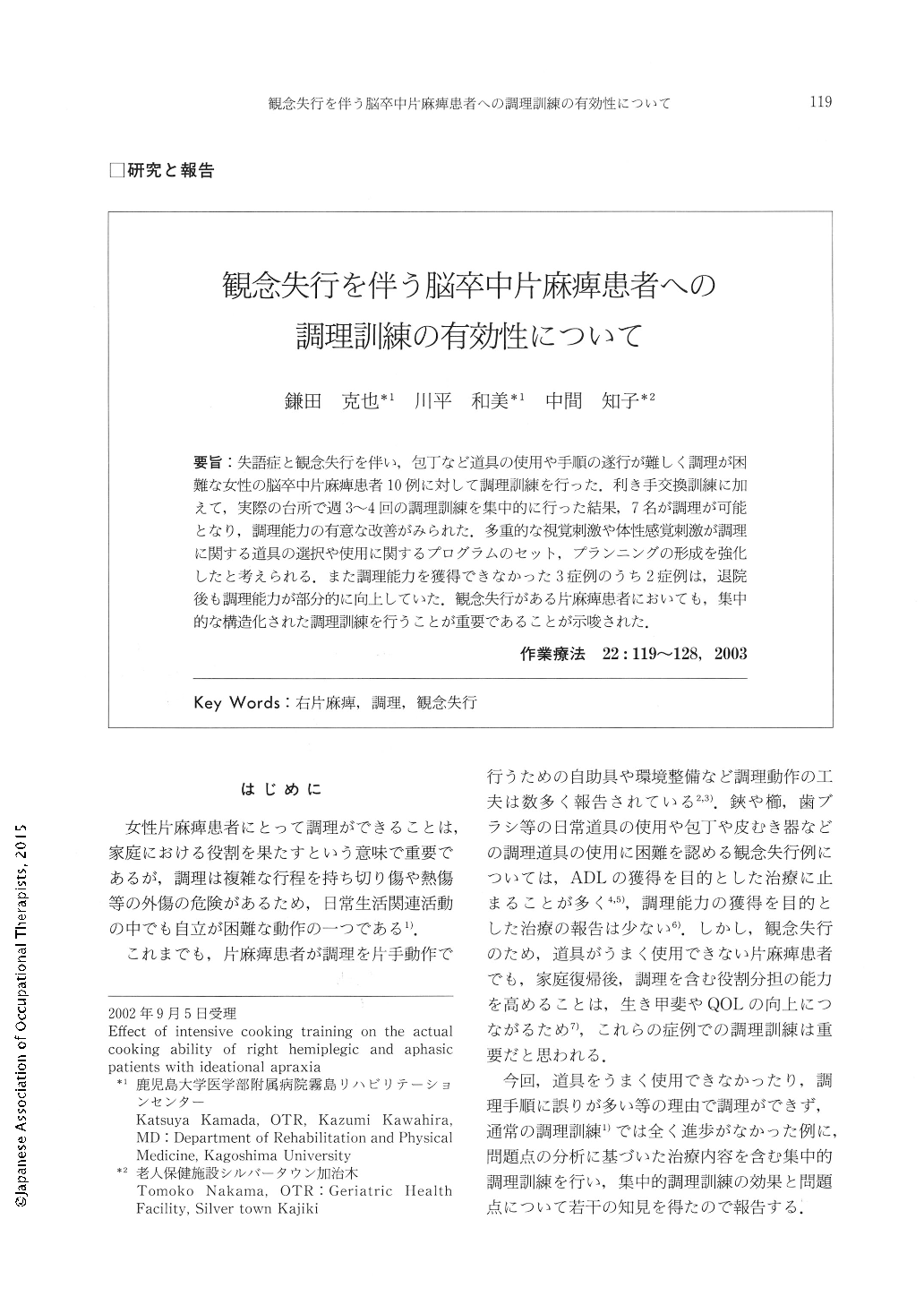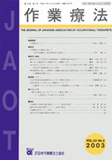Japanese
English
- 販売していません
- Abstract 文献概要
- 1ページ目 Look Inside
- 参考文献 Reference
- サイト内被引用 Cited by
要旨:失語症と観念失行を伴い,包丁など道具の使用や手順の遂行が難しく調理が困難な女性の脳卒中片麻痺患者10例に対して調理訓練を行った.利き手交換訓練に加えて,実際の台所で週3〜4回の調理訓練を集中的に行った結果,7名が調理が可能となり,調理能力の有意な改善がみられた.多重的な視覚刺激や体性感覚刺激が調理に関する道具の選択や使用に関するプログラムのセット,プランニングの形成を強化したと考えられる.また調理能力を獲得できなかった3症例のうち2症例は,退院後も調理能力が部分的に向上していた.観念失行がある片麻痺患者においても,集中的な構造化された調理訓練を行うことが重要であることが示唆された.
Objectives of this study were meant to evaluate the effects of intensive cooking training on the cooking ability of aphasic patients with ideational apraxia.
Subjects included 10 stroke patients (women, 54.3 ±12.1 yers of age) who did not recover their ability to manipulate cooking tools, and failed to retain cooking procedures. Intensive cooking training consisted of three to four times a week of actual cooking and training in the manipulation of cooking tools in a real kitchen, in addition to superior hand exchange training. In order to facilitate retrieval of planning and cooking related skills, the intensive cooking training sessions were held in a real kitchen. The cooking abilities of the patients were evaluated pre and post-intensive cooking training.
The cooking abilities of the patients significantly improved after the intensive cooking training. Seven of the ten patients recovered their cooking ability.
The intensive repetition of cooking procedures would strengthen the set of a program concerning the use of tools and a consolidation of planning. The results suggested that structured cooking training was effective for right hemiplegic and aphasic stroke patients with ideational apraxia.

Copyright © 2003, Japanese Association of Occupational Therapists. All rights reserved.


